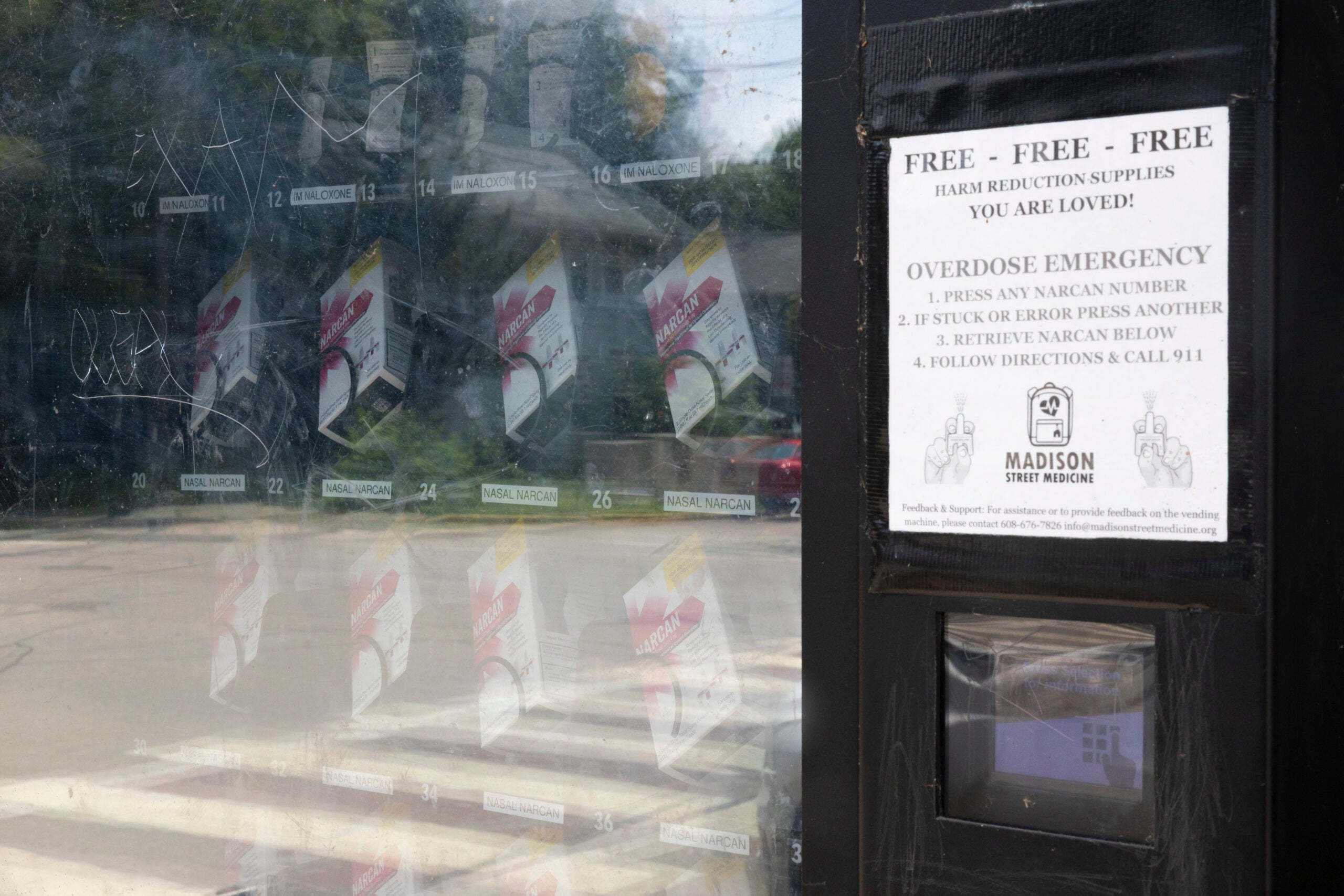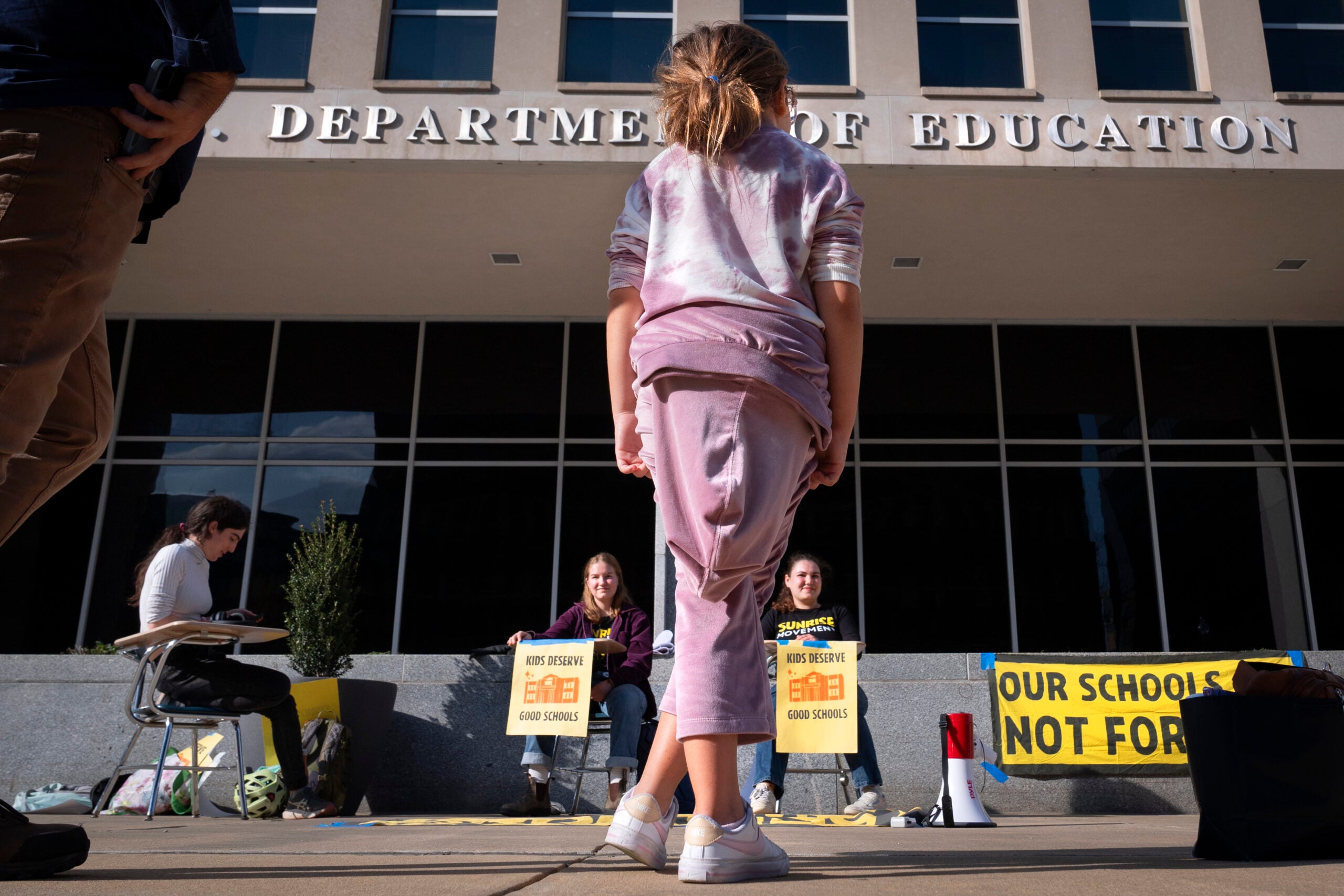On Wednesday morning, political and investigative reporters will start poring over 27,000 pages of emails sent and received by Kelly Rindfleisch. An appeals court has also ordered 434 pages worth of other previously secret documents be made public.
Rindfleisch was convicted almost two years ago of working on Republican political campaigns while she was on the taxpayers’ clock as an aide to then-Milwaukee County Executive Scott Walker.
Those emails may — or may not — implicate others.
News with a little more humanity
WPR’s “Wisconsin Today” newsletter keeps you connected to the state you love without feeling overwhelmed. No paywall. No agenda. No corporate filter.
How do you sift through tens of thousands of emails and other documents to find information important for the public to know? It means setting priorities – some carefully-chosen key word searches – and then a lot of sifting and patience.
Patrick Marley, a state government reporter for the Milwaukee Journal Sentinel, spoke with me about the daunting process of investigating such documents.
Terry Bell: How do political or investigative reporters sift through 27,000 emails?
Patrick Marley: It is a little overwhelming, there’s no question about that. We do have the benefit that the court gave us a little bit of time before (the documents) actually came out. Normally if records are unsealed, there’d be a court order and the records would be immediately available.
TB: So you caught a break there.
PM: So we caught a little bit of a break. It helps us prepare. It probably helps the court prepare a little bit. We’ve been able to put together a team – we have two people in Madison normally, me and Jason Stein. We’ll be bringing out a couple of other reporters to Madison. We have people back in Milwaukee who’ll be prepared to help go through these records. They are going to be available electronically, most of them. So we can load them into an internal server, and have a big group of people looking through a lot of emails.
TB: What do you tackle first? Is it the paper information? Is it the electronic information?
PM: What’s coming out are a few hundred pages of previously sealed records from the (John Doe) investigation. This would include hearing transcripts, affidavits backing up search warrants – I think that’s probably where we’d start, because there’s probably a story in there that the public hasn’t known before because this investigation has been secret.
Meanwhile, others can start strategizing how you can go through this many emails, and how you might be able to manipulate the records. If they’re electronic, we should be able to sort them by sender and receiver. We should be able to sort them by date. And that might help us get a handle on the best places to start in those emails.
TB: I imagine there are going to be a lot of emails that have nothing to do with the John Doe investigation.
PM: There definitely will be emails that have no relevance to anything at all, because what (Rindfleisch) is arguing is that the search warrant was far too broad. They just scooped up all of her emails off of her personal emails accounts over a long period of time. So yes, there’s going to be a lot of emails about …
TB: Birthday cake in the break room.
PM: Exactly. And so a record like that you can go through individually very quickly, but when there’s a large volume of them, it’s a little harder to know how long it will take.
TB: The one thing that’s occurred to me is that a lot of people still think that reporting, and especially political reporting, is a glamorous job. But really, the job involves a lot of this, which would actually look pretty tedious, I think, to most people watching.
PM: Oh yeah, definitely. What the public will see is the interesting emails, if there are any. What they won’t see are the 26,950 that are not interesting. And my colleagues and I will have to go through all of those.
Wisconsin Public Radio, © Copyright 2025, Board of Regents of the University of Wisconsin System and Wisconsin Educational Communications Board.







